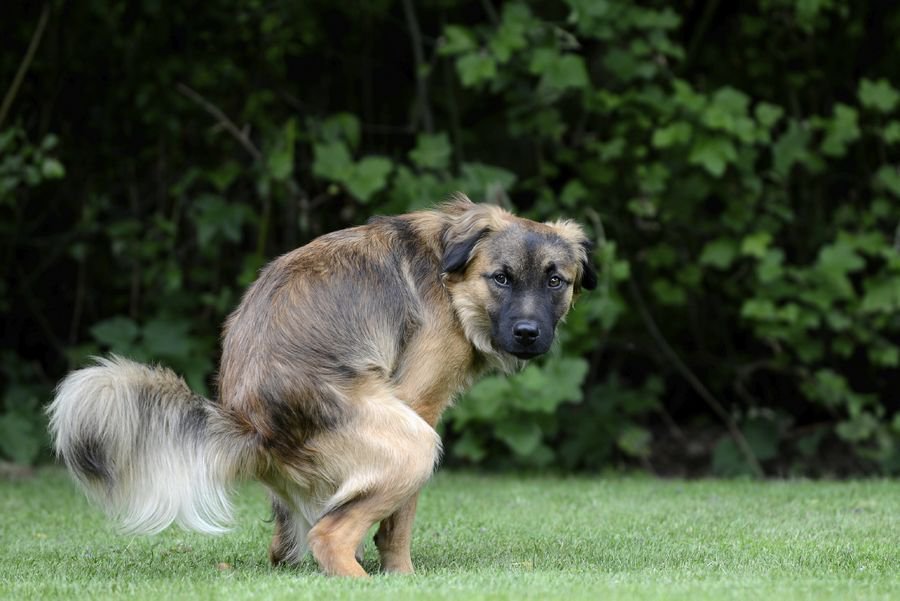My dog has diarrhea
Diarrhea in dogs is a common condition, but it should not be taken lightly, especially in a young puppy!
The causes can range from a simple digestive disorder to a more serious pathology, and only early treatment can ensure the best chances of recovery for your dog.
How does diarrhea manifest itself in dogs? What are the most common causes and how to react? This article tells you more about this digestive disorder in dogs and the best attitude to adopt if your dog suffers from diarrhea.
Identifying dog diarrhea
Diarrhea in dogs is manifested by a significant increase in the volume and frequency of stool output, associated with soft or even liquid stools. It can have different origins, and it is important to differentiate between diarrhea resulting from a pathology of the small intestine and that of the colon.
In puppies, diarrhea can have extremely serious consequences, as it leads to strong dehydration, which is particularly dangerous in young puppies. In general, any change in the appearance, volume or frequency of your dog's stools should alert you.
What causes diarrhea in dogs?
Dog diarrhea can have many different causes, sometimes not serious, but sometimes symptomatic of more dangerous conditions. In the absence of other symptoms, one cause that can be legitimately suspected is the invasion of your dog's digestive system by internal parasites.
If your dog is heavily infested with worms, he may also exhibit anemia, apathy, or other signs of discomfort that require attention to help guide the veterinarian's diagnosis. Bacterial overgrowth can also cause diarrhea of varying severity in dogs.
This phenomenon can be caused by specific pathologies (pancreatic insufficiency, digestive motility disorder, etc.) or by the ingestion of something inappropriate - edible or not. We might as well tell you that owners of dogs with uncontrollable voracious tendencies - Beagle owners will recognize themselves here - are more likely to be concerned by this kind of problem.
Food allergies and intolerances also tend to cause digestive problems, including diarrhea, in dogs. So beware of food allergies, especially if you notice your dog developing digestive problems or skin conditions.
Many viral infections can also cause diarrhea in our four-legged friends, including the famous coronavirus, which is particularly dangerous in puppies!
More rarely, your dog may have diarrhea due to chronic inflammatory bowel disease (IBD), metabolic disease (liver or kidney disease), partial intestinal obstruction (again, typical in small gluttons such as Beagles) or the absorption of certain toxic substances or medications.

What are the consequences of diarrhea in dogs?
When it is temporary or not a symptom of a more serious disease, diarrhea does not always have consequences for the dog. It does, however, lead to severe dehydration that should not be taken lightly, especially in puppies.
In some cases, the dog may also become depressed and refuse to eat. In these cases, the dog should be encouraged to drink, especially in hot weather. You may also notice a hardening of the abdomen, especially if the diarrhea is accompanied by digestive spasms, and you may hear your dog's belly gurgling happily.
Diarrhea associated with other symptoms, such as vomiting or fever, should lead you to consult a veterinarian quickly.
What to do if my dog has diarrhea?
If your dog is fragile or debilitated (very young, very old or sick), severe diarrhea should prompt you to consult a veterinarian quickly, if possible within 24 hours after the first symptoms appear.
This is also the best thing to do if your dog's diarrhea is very liquid, very frequent or contains traces of blood: your companion may have been poisoned!
Don't wait to seek the advice of an animal health professional in the cases listed above: they are likely to get worse very quickly!
In other cases where the animal seems to be in good health - apart from diarrhea - and provided that the diarrhea is not accompanied by fever, severe apathy or other predominant symptoms, you can start by putting him on a diet for 24 hours to give his digestive system a rest.
However, leave a large bowl of clean water available for your pet, and encourage him to drink!
To help him regain solid stools, you can pour a little rice water into his bowl, as long as it doesn't put him off, which would lead to further dehydration.
If your dog's diarrhea doesn't improve within 48 hours, don't hesitate to call your veterinarian for a qualified opinion.

How to prevent diarrhea in dogs?
To limit the risk of diarrhea in your dog, you can put in place a few simple rules of life. First of all, never change his diet abruptly: any transition must be done gradually to avoid upsetting your dog's digestive system.
Also, avoid giving him your leftovers and letting him rummage through the garbage or swallow anything. Prefer rubber toys to chew bones, and clean them regularly with dishwashing liquid or any other antibacterial food product (white vinegar, for example).
Deworming your dog 2 or 3 times a year is also the best way to avoid digestive problems linked to internal parasites that can cause serious illnesses. Finally, remember to regularly put your dog's bowls in the dishwasher to eliminate any risk of bacteria!
Seeing your pet in distress is always a real heartbreaker for caring owners. Even if the causes of temporary diarrhea are often benign, nothing beats the advice of a veterinarian to ensure the safety and well-being of your dog.
Indeed, behind this affection can hide a more serious pathology, with potentially dramatic consequences!
Loving and educating your pet also means protecting it against the hazards of life. This is why we strongly recommend that you take out health insurance as soon as possible. This will save you astronomical veterinary fees in case of accident or illness.


